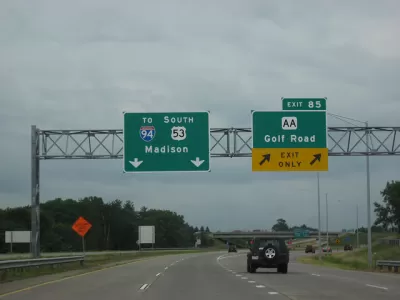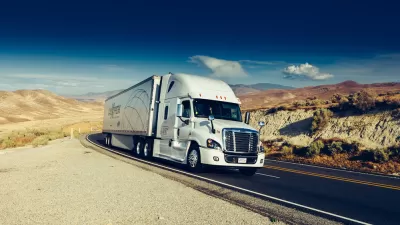Wisconsin legislators have voted to continue steep borrowing to pay for needed road repairs, while calls to increase the state’s gas tax grow louder.

Steven Walters of Urban Milwaukee reports that Wisconsin’s Joint Finance Committee—comprised of both Republicans and Democrats—have voted to borrow an additional $350 million to fund highway maintenance and construction projects. Critics of the vote have called for a long range strategy for funding highway improvements, including raising the State’s gas tax and/or car registration fees.
As a result, major projects like widening I39/90 between Madison and Beloit will be delayed by only one year, instead of two.
But there’s a cost: 21-cents out of every $1 in Wisconsin gas taxes and vehicle registration fees will soon go for debt service payments on debt interest and principal.
In just 10 years, debt service on transportation projects has doubled – from 10.3 percent to 20.7 percent, according to the Legislative Fiscal Bureau (LFB).
Walters writes that State Senator Janis Ringhand has defended the borrowing as necessary to address what the US Department of Transportation has cited as "poor or mediocre conditions" for 71 percent of Wisconsin’s roads.
FULL STORY: 21% of Gas Tax Will Go to Repay Debt

Planetizen Federal Action Tracker
A weekly monitor of how Trump’s orders and actions are impacting planners and planning in America.

San Francisco's School District Spent $105M To Build Affordable Housing for Teachers — And That's Just the Beginning
SFUSD joins a growing list of school districts using their land holdings to address housing affordability challenges faced by their own employees.

The Tiny, Adorable $7,000 Car Turning Japan Onto EVs
The single seat Mibot charges from a regular plug as quickly as an iPad, and is about half the price of an average EV.

Seattle's Plan for Adopting Driverless Cars
Equity, safety, accessibility and affordability are front of mind as the city prepares for robotaxis and other autonomous vehicles.

As Trump Phases Out FEMA, Is It Time to Flee the Floodplains?
With less federal funding available for disaster relief efforts, the need to relocate at-risk communities is more urgent than ever.

With Protected Lanes, 460% More People Commute by Bike
For those needing more ammo, more data proving what we already knew is here.
Urban Design for Planners 1: Software Tools
This six-course series explores essential urban design concepts using open source software and equips planners with the tools they need to participate fully in the urban design process.
Planning for Universal Design
Learn the tools for implementing Universal Design in planning regulations.
Smith Gee Studio
City of Charlotte
City of Camden Redevelopment Agency
City of Astoria
Transportation Research & Education Center (TREC) at Portland State University
US High Speed Rail Association
City of Camden Redevelopment Agency
Municipality of Princeton (NJ)





























